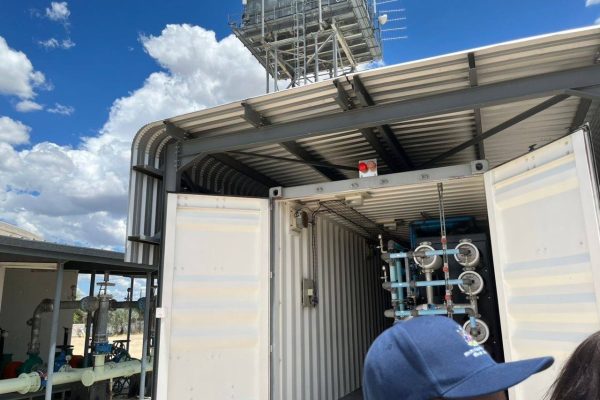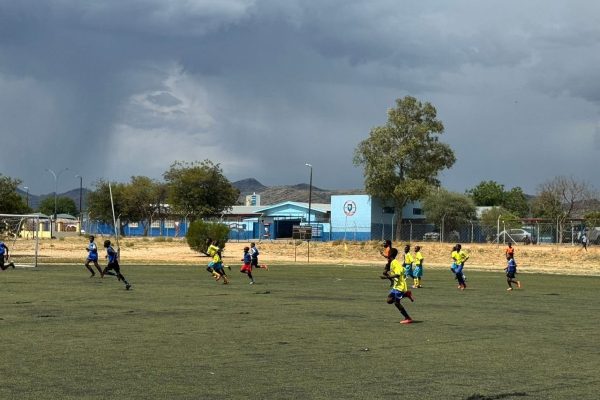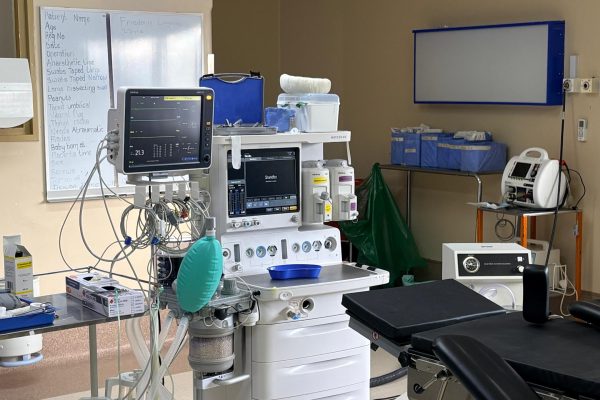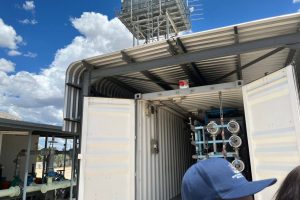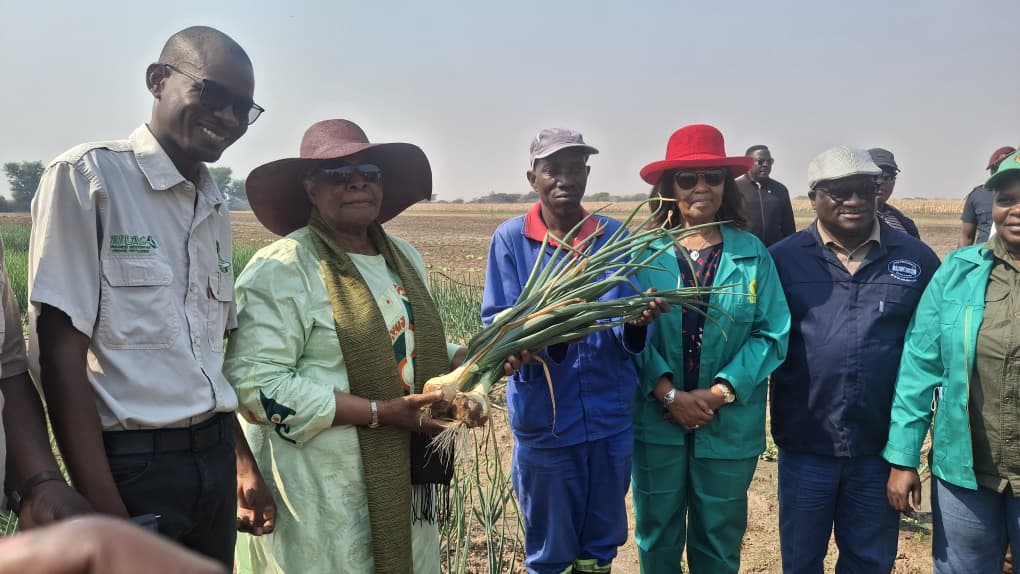
By: Annakleta Haikera
President Netumbo Nandi-Ndaitwah has stressed the urgent need for stronger collaboration between small-scale and commercial farmers, particularly to address electricity challenges and high agricultural input costs that continue to weigh down production.
Speaking during her visit to the Shadikongoro and Ndonga Linena Green Schemes in the Kavango East Region on Thursday, the President noted that the electricity demand at the projects have reached nearly 40 percent of maximum capacity, calling for urgent engagement with NamPower and the Ministry of Industrialisation and Energy.
“Food production will not succeed if agricultural inputs are too expensive. Input costs must be reduced to ensure farmers can produce effectively,” she said.
Nandi-Ndaitwah also underscored the gradual shift towards solar energy in green schemes, which could save millions annually. She said these savings could be redirected towards production, but cautioned that maintaining solar-powered operations would also come with challenges.
The President further encouraged the private sector to invest in the farms, saying sustainable partnerships are essential for the future of Namibia’s food production.
Shadikongoro Green Scheme farm manager, Joseph Mutero, said the project is facing serious operational hurdles. He noted that the farm does not have a combine harvester, while most equipment is outdated and in need of urgent replacement.
“Although we purchased a new tractor in 2024, the absence of proper machinery continues to limit productivity. The farm also lacks cold storage facilities, which makes it difficult to preserve harvested crops,” Mutero explained.
He further stressed the high cost of electricity, pointing out that Shadikongoro spent N$2.3 million on power between March 2024 and March 2025.
“Savings from alternatives such as solar would significantly boost our production capacity,” he added.
Meanwhile, Janno Rentel, Ndonga Linena’s farm manager, said electricity consumption at his farm reaches N$12 million annually, largely due to water-intensive irrigation.
He suggested the adoption of soil-moisture technologies to guide efficient irrigation for both commercial and small-scale farmers.
Small-scale farmer Lazarus Nande echoed the concerns over input costs, urging the government to bypass middlemen in the supply of farm inputs.
“If farmers could source inputs directly from suppliers, we would stand a chance to make a profit,” he remarked.
Nande also highlighted the need for stronger agro-processing initiatives, noting that much of what is produced locally is not consumed.
The President’s visit to Shadikongoro and Ndonga Linena forms part of a broader engagement with green schemes in the Kavango East Region, aimed at inspecting progress, assessing challenges, and fostering partnerships to sustain food production and empower local communities.
With that, Nandi-Ndaitwah reiterated the government’s commitment to ensuring Namibia’s green schemes reach their full potential in boosting national food security. She emphasised that while the private sector may be engaged, it will not be to take over farms, but to invest in and support them.
“The government has already invested in infrastructure and management. If we bring in the private sector, it will be as a partner, not a replacement,” she said.
The President stressed the importance of fully utilising the fertile land and water resources available in regions such as Zambezi, Kavango East, and Kavango West.
She recalled how small-scale farmers once thrived before the Agricultural Business Development Agency (Agribusdev) interventions disrupted progress.
“One farmer told me he was close to becoming a commercial farmer, but when Agribusdev came in, everything collapsed. Now they feel they are picking up again,” she noted.
Nandi-Ndaitwah commended the farm’s manager for ensuring the timely availability of inputs for both winter and summer crops, particularly wheat.
“Inputs have always been a hurdle, but I am glad to see that they are here on time. This shows progress,” she added.
Reaffirming her commitment, Nandi-Ndaitwah declared:
“I commit myself to feed the Namibian people, and I will not lie to them. If it means I must visit these regions twice a year, I will. I must feed this nation without failure,” she announced.
She added that while the northern regions would focus on food production, the southern regions would also be strengthened for cash crops, which are job-intensive and already driven by the private sector.
Additionally, the President announced plans to support the meat industry in Kunene to revive the beef sector affected by drought.
“Food security is capital-intensive, but it is a must. We must invest in it,” she concluded.
Agribusdev was established in 2011 as a state-owned enterprise under the Ministry of Agriculture, with the mandate to manage and operate Namibia’s green schemes. It was meant to increase food production, create jobs, and promote small-scale farmers.
However, over the years, Agribusdev struggled with mismanagement, financial difficulties, and governance challenges, leading to late input supplies and collapsing production cycles. Instead of uplifting small-scale farmers, its inefficiencies caused setbacks across most green schemes.
In 2021, the Cabinet dissolved Agribusdev and returned the management of the schemes to the Ministry of Agriculture.
Since then, the government has been pursuing new models, including private sector partnerships, to revitalise the projects and restore their role in national food security.


